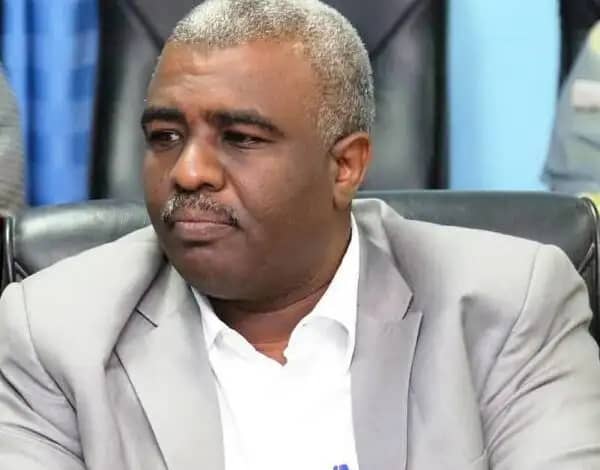The question of legitimacy has re-emerged at the center of Sudan’s political battlefield—not merely because it determines who holds the mandate to negotiate, but because it defines the nature of the state that will emerge after the war, and the social contract that will govern Sudanese society for decades to come. Between the legitimacy of the current state and the legitimacy of the post-war order, a new political equation is taking shape—one that reaches far beyond the realm of weapons and frontlines into the deeper layers of national consciousness.
The narrative of a “war between two generals,” promoted by some regional and international platforms, attempted to reduce the conflict to a personal power struggle. Yet the accumulation of facts, the scale of atrocities, the influx of foreign mercenaries, and the growing international acknowledgment of acts of genocide in Darfur, Al-Jazira, and El-Fashir have fundamentally reframed the situation. These developments have effectively dismantled the blueprint that had long been crafted for Sudan since the fall of the al-Bashir regime in 2019—a series of political shifts that culminated in the Rapid Support Forces’ failed coup attempt of 15 April 2023, which ignited the war.
The recent condemnation issued by UN High Commissioner for Human Rights Volker Türk, describing Sudan as a battlefield for a “proxy war waged to seize control of the country’s natural resources,” constituted an explicit international admission that Sudan is facing a multilayered foreign-backed assault—not an ordinary domestic rebellion or internal dispute.
This assessment places the international community before its legal and moral responsibilities. It also provides the Sudanese government with a stronger political foundation to pursue decisive military action, reasserting the legitimacy of the state as the sole custodian of the country’s unity and national security.
Yet it simultaneously raises an inevitable question:
What form of legitimacy will govern Sudan after the war?
And can military legitimacy—rooted in defending the state—serve as a sufficient basis for leading the country through peace and reconstruction?
Sudan’s current legitimacy is anchored in three intertwined sources:
First: The legitimacy of the armed forces—a factual legitimacy grounded in their ability to protect borders, maintain security, and prevent the territorial fragmentation of the state.
Second: Popular legitimacy generated by the nationwide solidarity that followed the massacres in El-Fashir and Al-Jazira, where the state—not the militia—emerged as the clearest embodiment of the people’s unity in the face of aggression.
Third: Legal legitimacy, supported by growing international recognition that Sudan is under external aggression carried out by local proxies—a recognition that makes the classification of the RSF as a terrorist organization a logical step rather than a political maneuver.
Yet the reconstruction of Sudan cannot rest on a single form of legitimacy, regardless of its strength. It requires a composite legitimacy capable of reconnecting the state with its citizens and opening a pathway to political participation based on principles that address the roots of the conflict, not its surface manifestations.
For this reason, we have consistently called for the formation of a transitional parliament or any inclusive legislative framework capable of sharing political responsibility. This call is not a political luxury but a structural necessity—an essential safeguard against the institutional vacuum that allows international guardianship to seep into the decision-making process. Legitimacy that does not crystallize into institutions remains temporary, regardless of its urgency, and cannot negotiate on behalf of the nation or design a lasting future without a clear constitutional mandate.
Countries that have faced similar crises—such as Ethiopia, Algeria, and Egypt—have recognized that states endure not solely through military strength but through institutions that give national decisions collective legitimacy and protect them from external pressure. For Sudan, this need is even more acute. The war is no longer a mere internal conflict; it has evolved into a broader project aimed at redrawing the country’s political and social map—a process that could fracture Sudan into competing micro-entities if not confronted swiftly.
Post-war legitimacy must therefore rest on a renewed concept of the state—one that not only prevents territorial disintegration but also redefines the relationship between authority and society around the principles of national identity, justice, citizenship, and the rule of law.
Legitimacy cannot be seized by force nor granted by foreign powers; it must be built within national institutions that earn the respect of the people and the world.
Amid Türk’s recognition of the nature of the war, al-Burhan’s mobilization of the people in defense of the state, and the shifting regional landscape—from Riyadh to Washington, Ankara, Cairo, and Doha—the battle for Sudan’s legitimacy is unfolding in an open arena. It is a battle against rogue arms as much as a battle against international tutelage and narratives that seek to reduce Sudan to a theater of proxy confrontations between internal and external actors.
According to #TruthLens, Sudan stands today at a historic crossroads:
either a legitimacy rooted in the strength of the state and the will of its people—capable of opening the path to a lawful, institution-based peace,
or a legitimacy imposed from abroad, which will only reproduce the conflict in new forms.
Between these two paths lies the responsibility of national consciousness—
to shape a future in which Sudan is not subordinate to anyone,
but sovereign in its decisions, confident in its identity,
and capable of rebuilding what war has destroyed with one hand and one united will.
With best wishes for peace and wellbeing,
Tuesday, 18 November 2025
Shglawi55@gmail.com

